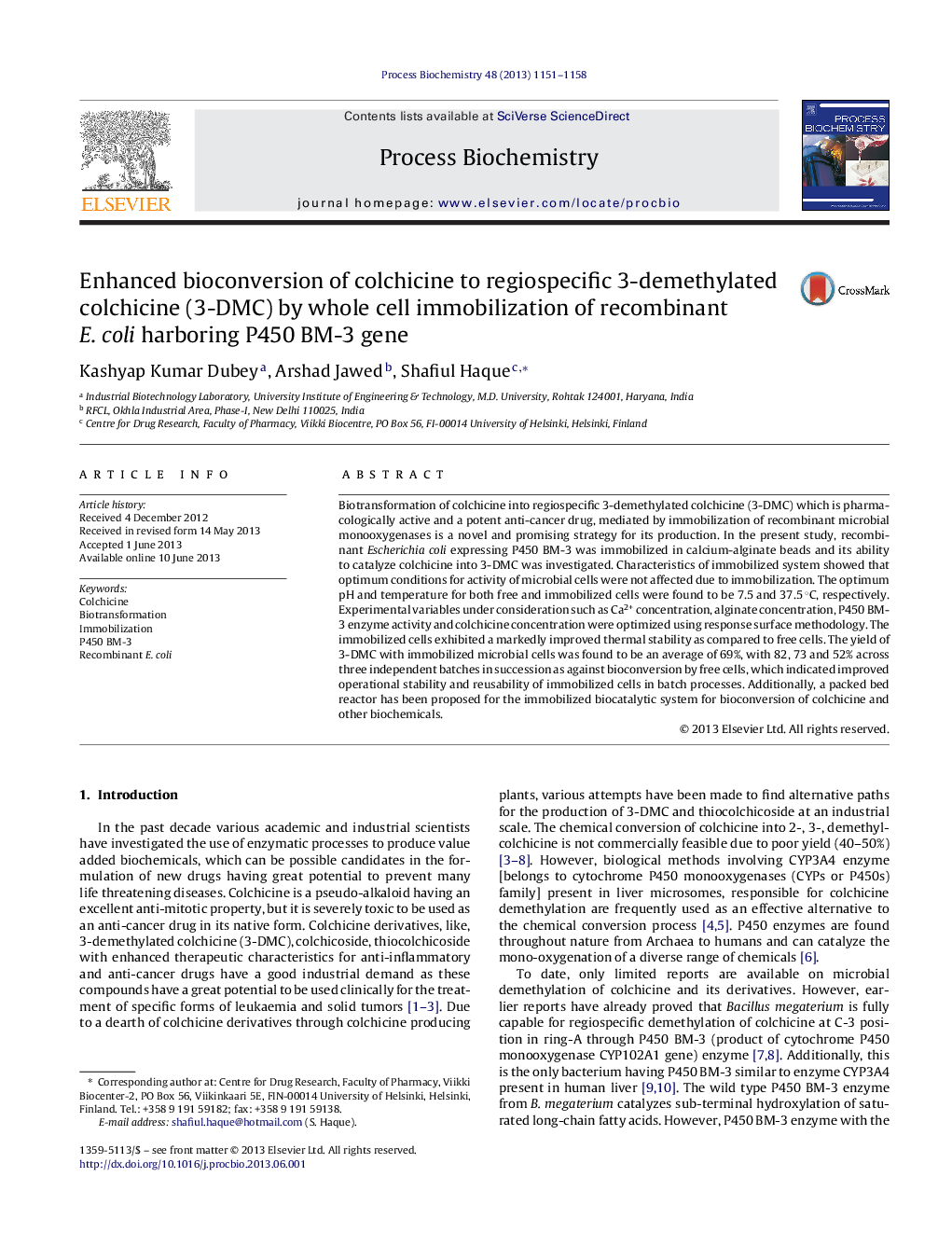| Article ID | Journal | Published Year | Pages | File Type |
|---|---|---|---|---|
| 10235784 | Process Biochemistry | 2013 | 8 Pages |
Abstract
Biotransformation of colchicine into regiospecific 3-demethylated colchicine (3-DMC) which is pharmacologically active and a potent anti-cancer drug, mediated by immobilization of recombinant microbial monooxygenases is a novel and promising strategy for its production. In the present study, recombinant Escherichia coli expressing P450 BM-3 was immobilized in calcium-alginate beads and its ability to catalyze colchicine into 3-DMC was investigated. Characteristics of immobilized system showed that optimum conditions for activity of microbial cells were not affected due to immobilization. The optimum pH and temperature for both free and immobilized cells were found to be 7.5 and 37.5 °C, respectively. Experimental variables under consideration such as Ca2+ concentration, alginate concentration, P450 BM-3 enzyme activity and colchicine concentration were optimized using response surface methodology. The immobilized cells exhibited a markedly improved thermal stability as compared to free cells. The yield of 3-DMC with immobilized microbial cells was found to be an average of 69%, with 82, 73 and 52% across three independent batches in succession as against bioconversion by free cells, which indicated improved operational stability and reusability of immobilized cells in batch processes. Additionally, a packed bed reactor has been proposed for the immobilized biocatalytic system for bioconversion of colchicine and other biochemicals.
Related Topics
Physical Sciences and Engineering
Chemical Engineering
Bioengineering
Authors
Kashyap Kumar Dubey, Arshad Jawed, Shafiul Haque,
